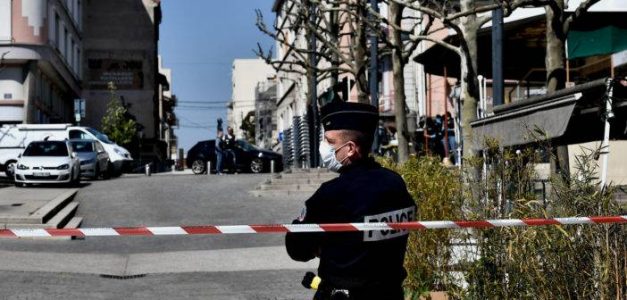
The latest terrorist attack in France is a sobering wake up call for Europe
A tobacconist shop in the quaint town of Romans-sur-Isère near Grenoble became the gruesome stage of the latest terror attack to shake France. On Saturday, a 30-year-old Sudanese refugee stabbed the owners and a customer, before surrendering to the police. Counter-terrorism officers later found extensive jihadi propaganda at his place and opened an investigation into “murder linked to a terrorist enterprise”.
The tragic event should be a sobering wake up call for European decision makers. Consumed with the growing impact of the novel coronavirus pandemic, which has so far infected more than 1.3 million people and claimed the lives of 75,000 people all over the world, politicians on both national and European level have paid very little attention to the threat posed by transnational terrorism.
Yet it would be foolhardy to think that the coronavirus crisis has somehow magically solved the Middle East. If anything, the crisis is an opportunity for ISIS and other groups throughout the region to take advantage of the situation and beef up their presence.
At the root of transnational terrorism’s deadly reach lies the fact that one of its key drivers – extensive funding networks – is far from being solved. Ever since ISIS lost most of its territory (thereby losing the capacity of fund itself through taxation or exploitation of resources), the importance of these funding networks has only grown.
Probably the biggest source of funding for radical groups such as ISIS has been the tiny nation of Qatar. Despite ample evidence pointing to the involvement of government officials, institutions and businessmen alike, the country has been able to dole out wallops of cash to countless terrorist groups with impunity. Hamas has received more than 1.1 billion since 2012, and its leaders have frequently found safe harbor in Qatar. Members of the Royal Family have run safe houses Abu Musab al-Zarqawi, the founder of Al-Qaeda in Iraq, the predecessor to ISIS. Other benefactors of Qatari largesse include Al Sham, a Syrian militant group, Kataib Hezbollah, a Shia militia backed by Iran, as well as the Taliban.
Doha has taken steps to whitewash its reputation in recent years, earning plaudits from officials on both sides of the Atlantic for stemming the funding of terrorist groups. These PR campaigns should not be taken seriously: as recently as 2020, an American photojournalist kidnaped and tortured by Al-Nusra Front in Syria sued the Qatar Islamic Bank for its role financing the group.
Matthew Schrier argues that both Al-Nusra and Ahrar Al-Sham “used an international network of donors and charities” to fund their operations. The lawsuit also claims QIB provided “financial services to those donors and financial support to the charities.” Specifically, the lawsuit implicates Qatari national Saad Al-Kabi as a funder of Al-Nusra by using QIB services over a period of more than a year.
Another headline-grabbing court case involves Moutaz and Ramez Al-Khayyat, two wealthy brothers accused of using their accounts at Doha Bank to fund the same Al-Nusra Front. They were sued in late 2019 at the High Court in London by eight Syrians who say they lost homes and businesses, and suffered physical and mental harm, because of Al-Nusra’s activities.
According to court documents, it seems the Khayyat brothers relied on their massive fortune to bankroll Al-Nusra’s reign of terror: they allegedly sent large sums of money via the Doha bank to accounts in Turkey and Lebanon, money that was subsequently withdrawn and scurried across the border into Syria.
If the claims prove true, it would mean that ostensibly respectable businessmen like the Khayyat brothers are nothing more than jihadists in disguise. They currently own Power International Holding, a conglomerate with interests in construction, property and dairy farming. If the virus of fundamentalisms has infected one of Qatar largest companies, it’s safe to assume many other Qatari companies may have been used as piggybanks for radical Islamists.
Source: EU Reporter





